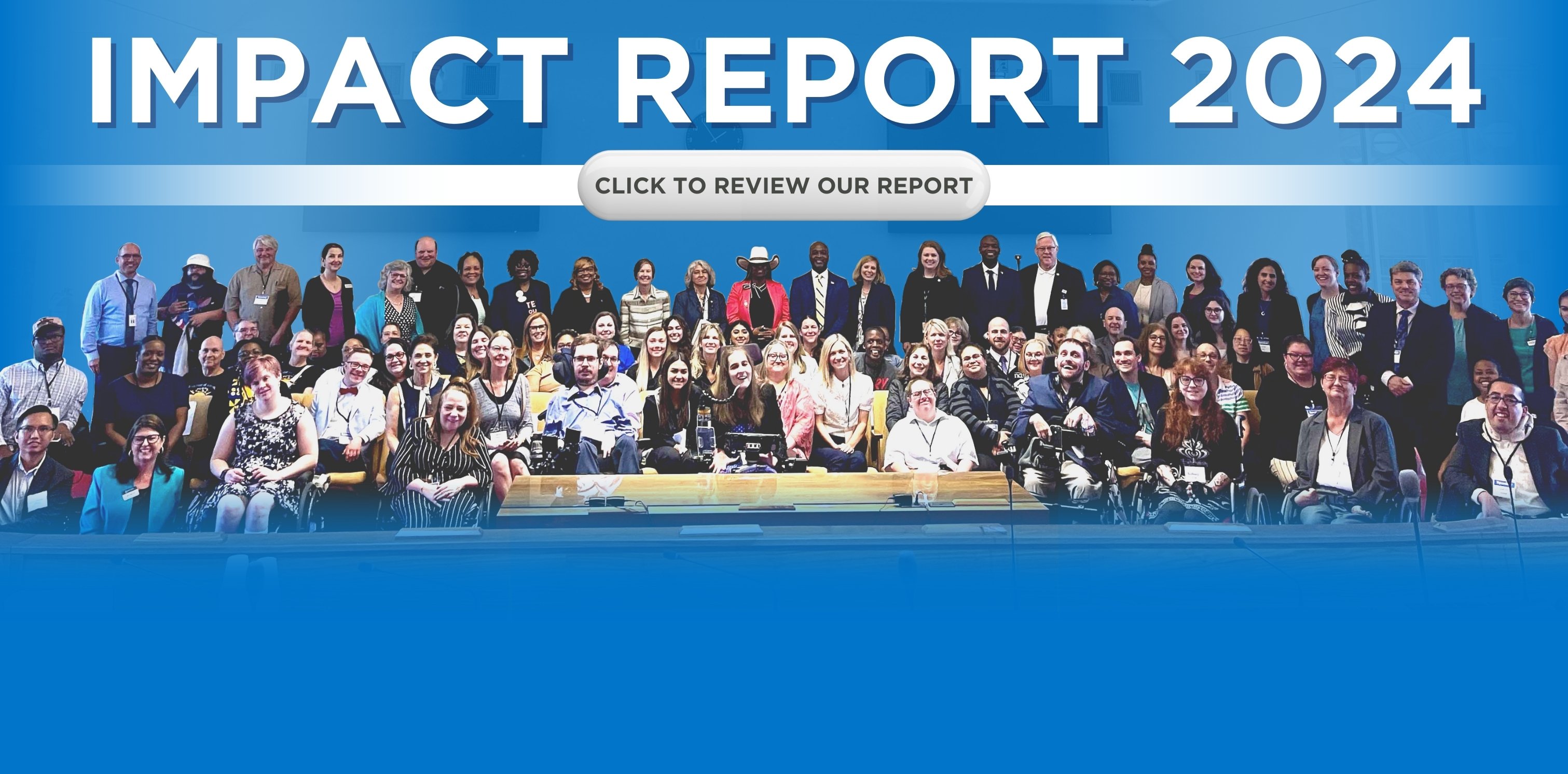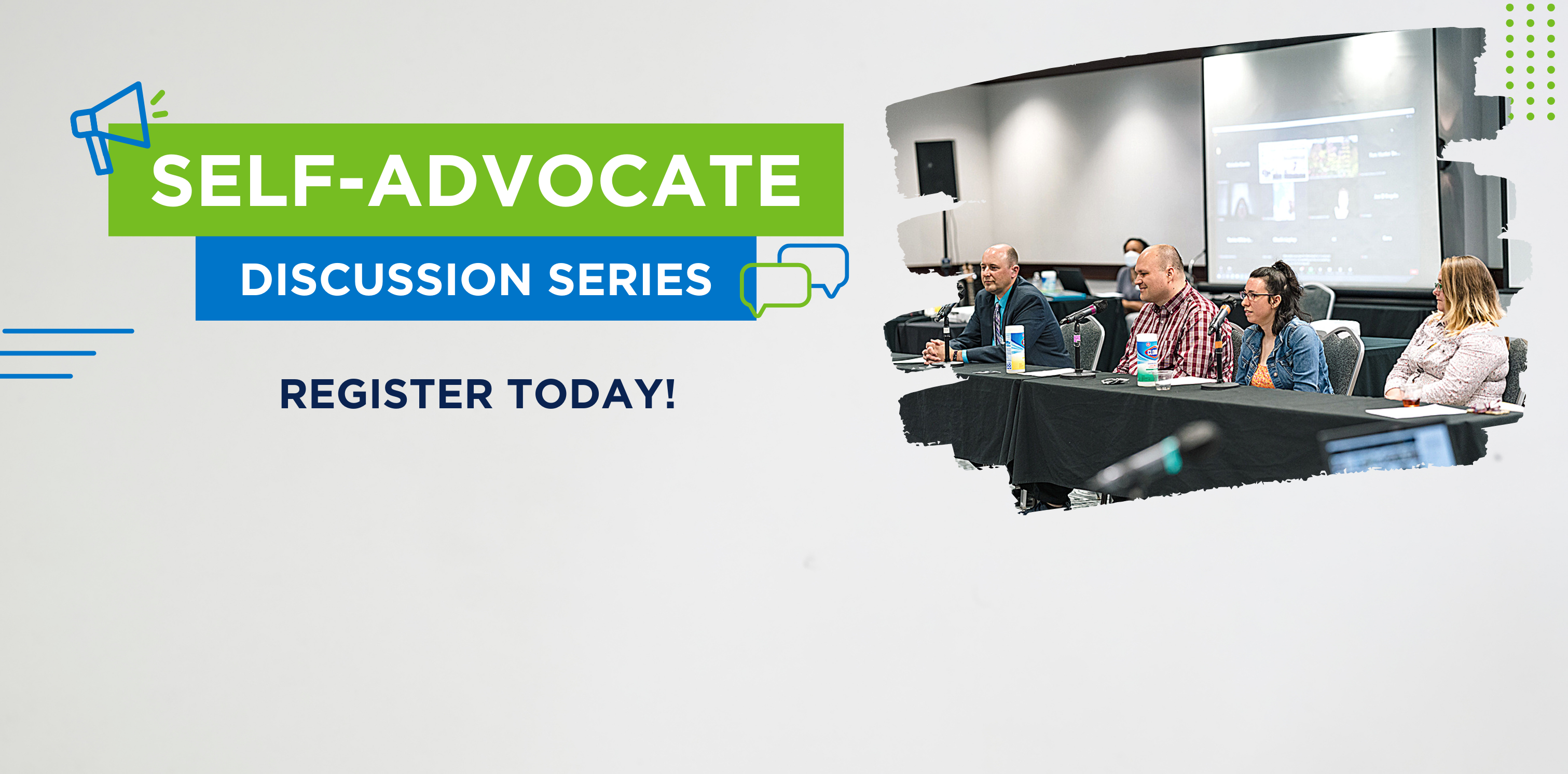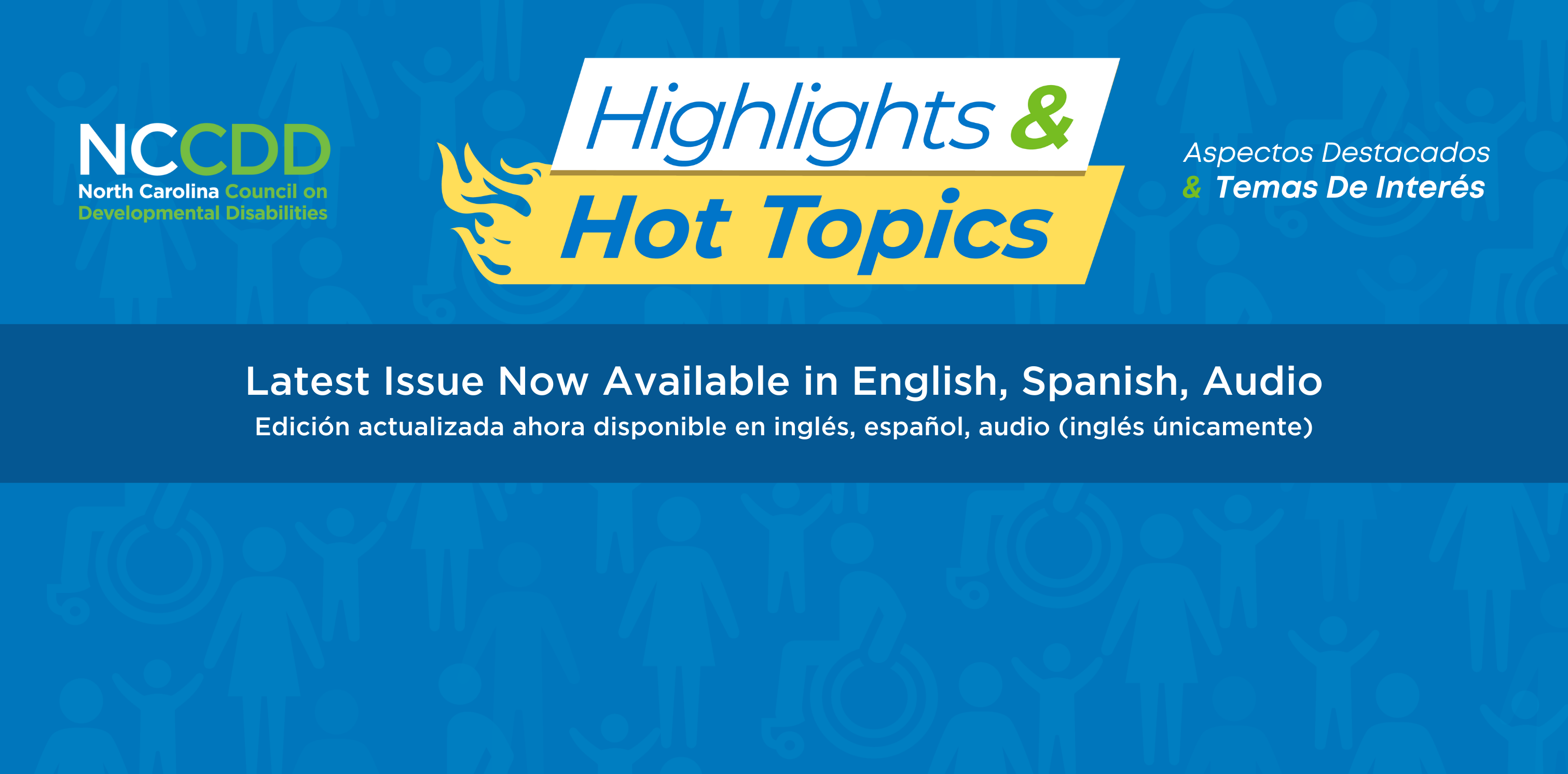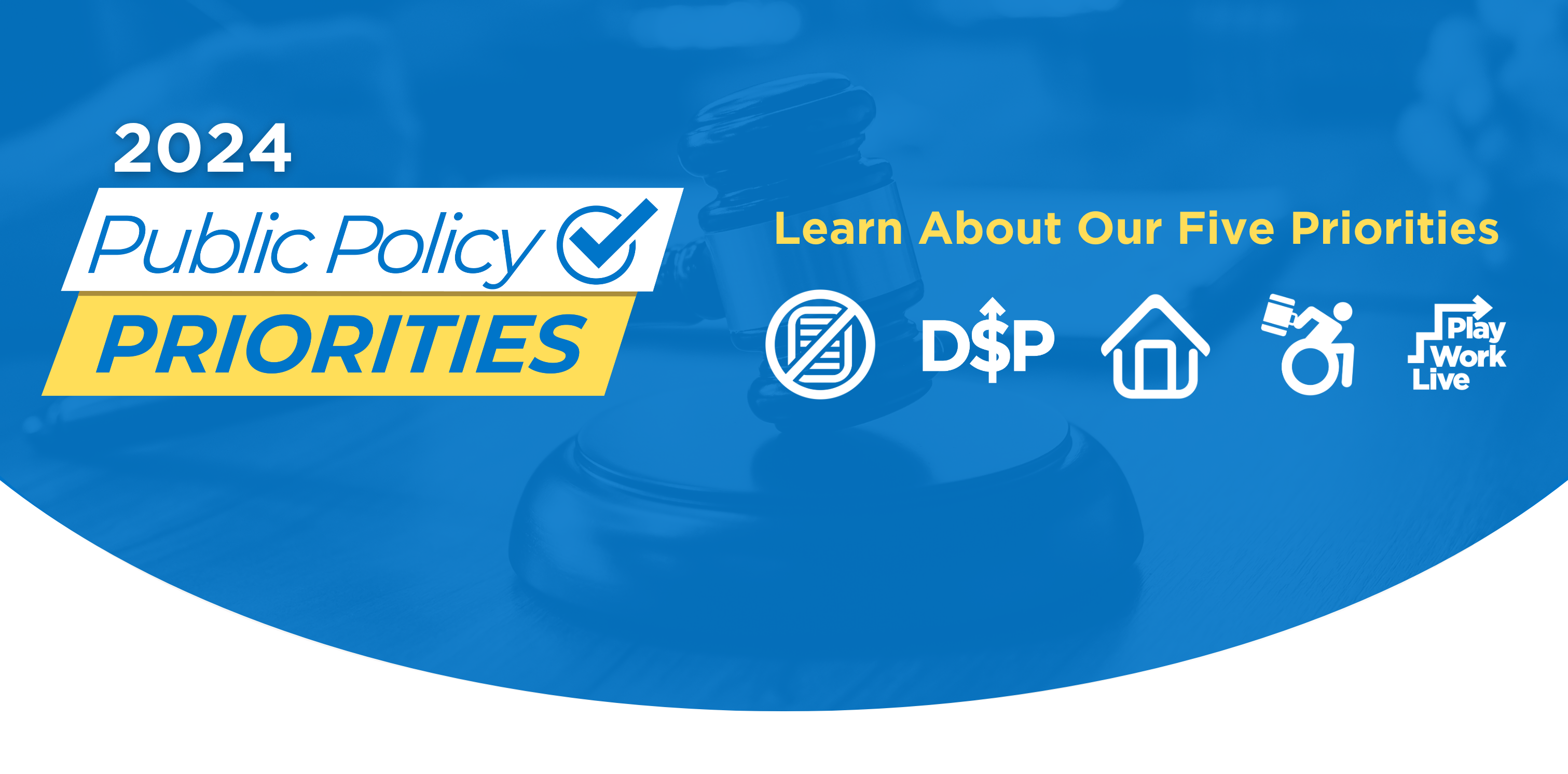Inclusive Leadership Development Training
Leadership Training and Delivery: The focus of this area is to consider intentional leadership development education for self-advocates, parents, professionals and other stakeholders.
The Leadership Development Training for People with Intellectual and Other Developmental Disabilities (I/DD), Parents, Professionals and Other Stakeholders initiative creates an opportunity for Disability Rights North Carolina and the Center for Creative Leadership (CCL) to partner with NC stakeholders on the design and implementation of an innovative and unique leadership development program for people with I/DD, family members and guardians, professionals, and other stakeholders to support advocacy for systems change in North Carolina.
This initiative supports NCCDD's Goal 3 of the Council’s Five-Year Plan: Increase advocacy for individuals with I/DD.
Why is NCCDD funding this initiative?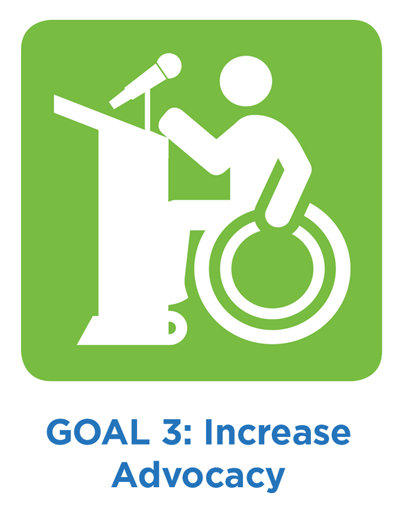
This feature is mandated in the Developmental Disabilities and Bill of Rights Act (DD Act) for Councils on Developmental Disabilities, and part of the NCCDD Five-Year Plan to:
- Increase support to a statewide self-advocacy organization through leadership development;
- Support opportunities for individuals with I/DD who are considered leaders to provide leadership training to individuals with I/DD who may become leaders
- Support I/DD professionals, other professionals and community leaders to receive leadership development; and
- Increase individual, family, public and system knowledge and engagement to provide system advocacy for the financial security and community living opportunities of individuals with I/DD.
Also,
- Developmental disabilities policy-based advocacy leadership development training
programs involve high cost, outcomes tracking challenges, and barriers to long-term participant follow-up. - There are no policy-based advocacy leadership development training programs where people with intellectual and other developmental disabilities (I/DD), parents, professionals and other stakeholders train together.
- Individuals with I/DD are rarely training facilitators or coordinators for policy-based advocacy leadership training initiatives geared towards individuals with I/DD and their families; and nearly never facilitators and coordinators if leadership training program is geared toward professionals.
What are the major goals and objectives?
- Produce a facilitator’s guide to implement leadership development training.
- Produce and pilot a train-the-trainer curriculum/program for facilitators of the leadership development training.
- Design and implementation incorporates Individuals with I/DD as lead, or minimally, co-lead training facilitators or coordinators.
- Conduct an impact evaluation for the leadership development training.
- Conduct a train-the-trainer program evaluation.
- Develop a method for maintaining long-term contact with training graduates.
What has taken place since the start of the program? (Activities)
- The initiative contract started on July 1, 2018. The pilot training is scheduled to conclude by November 2020.
- Year two began January 1, 2020.
- Year one included:
- Establishing a 15-member advisory committee with balanced representation by people with I/DD, family members and guardians, professionals, and other stakeholders.
- Developing the integrated leadership development training curriculum.
- Designing the training program delivery tools, materials, and platforms.
- Year two* includes:
- Designing and implementing program QI evaluations and assessments.
- Program branding. Marketing and communication mechanisms.
- Recruiting pilot training class participants.
- Pilot the training.
- Initiating development of the train-the-trainer curriculum and facilitator’s guide.
- Design the impact evaluation for graduates.
- Design long-term engagement mechanism for graduates.
*COVID-19 physical distancing restrictions required virtual/on-line delivery of all pilot training sessions. Future sessions include two in-person and two-virtual training sessions.
What long-term changes are expected as a result of this initiative?
- More individuals with I/DD will lead and sustain self-directed lives through self-advocacy, family advocacy and stakeholder leadership.
- More individuals with I/DD and their families will knowledgeably advocate and take part in decisions that affect their lives, the lives of others and/or systems.
- More I/DD professionals, other professionals and community leaders will receive leadership development to support collective impact to advance the financial security and community living opportunities of individuals with I/DD.
- Increase individual, family, public and system knowledge and engagement to provide system advocacy for the financial security and community living opportunities of individuals with I/DD.
- An accessible network of advocates trained to promote systems change locally and at state and federal levels, equipped with up-to-date information and materials.
Who can I contact for questions?
Coordinators Corye Dunn, Director of Public Policy for Disability Rights of North Carolina, [email protected]
NCCDD: Melissa Swartz, Systems Change Manager, [email protected]
Additional Resources
Click here to download a one pager of this initiative.
A presentation to the NC Council on Developmental Disabilities: Disability Rights North Carolina/Ability Leadership Project North Carolina (ALP-NC) Update and Launch Session Recap - Aug 28, 2020
- Video Link: https://youtu.be/eslSLF2w-vU
- Attachment: Presentation Slides
Recent Posts
Message from the Executive Director Public Policy Update (as of…
